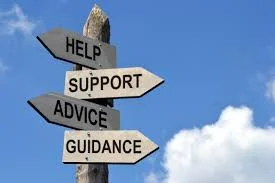Recently I was reading an article in Psychology Today that identified the “Sure Signs of a Healthy Relationship.”* There were seven key components presented which indicated a healthy relationship. I thought it would not only be helpful but also fun to elaborate on the seven signs to a healthy relationship by doing a seven series blog posting. Each blog post I will present one of the healthy signs of a relationship with additional content that comes to mind from my work with couples. Let’s get this seven series blog post started with the first sign of a healthy relationship: Partners Support Each Other’s Opportunities for Growth.
When you think about your relationship and you think about the individual goals each person wants to achieve there are two key words that jump out to me here: support and growth.
How are you being supported, but also how are you supporting your partner?
It is always important to define what each of these words mean to each other within the relationship. Support to one person may not equal support to the other, and the same can be considered with growth.
Let us consider growth first. What does growth mean to each individual within the relationship? Growth for one partner may mean growth in his or her career, while growth to the other partner could mean growth with diet and exercise. Growth could be individually related, but could also be growth within the relationship. So, when we think about how to support each other’s opportunity for growth it is important to ask and determine how each partner feels as if he or she is meeting his or her individual or relational goals.
The concept of support is something that comes up frequently in couples’ therapy. Conflict, disconnection, and resentment can be a result of one or both of the partners not feeling as if they are receiving the support they need. First, it is necessary to know what kind of support is needed. Also, what does support look like? For one couple, it may be that support from his or her partner means that the partner is on the same page with him or her with the goals at hand. Maybe the person within the relationship wants to approach his or her individual goals as a team. It could also be that support is financial support, or maybe even moral support. Often times when asking couples how they need to be supported, it is a conversation unsaid and couples struggle to know exactly what it is they are needing from their partner.
It is time to ask yourself what specifically support looks like in your relationship. How do I feel supported and how do I need to be supported? How do you ask for the support needed, and then how does one then give it? Answering these questions begins first with having the conversation.
A helpful tip I share with couples is for the couple to periodically have conversations about their individual and relational goals. A friend of mine shared how her and her husband huddle up every year or so to ask themselves the following questions:
- Are we where we want to be as a couple?
- Is each of us happy with where we are in life? In this relationship? Individually?
- What are our goals as a couple in the next year, five years, or ten years?
- Then, what is each of our individual goals within the next year, five years, or ten years?
Problems tend to arise when couples do not engage in these conversations about individual and relational goals.
When goals are not explicit, resentment can build and couples can be left feeling any or all of the following:
- He/she does not care about what is important to me
- He/she does not support me in the way I need him/her to
- This relationship is not what I thought/hoped it would be and my partner is okay with how the relationship has become
It is imperative to begin to have these conversations with your partner. Transitions in life inevitably require check-ins with yourself and with each other to keep the focus on maintaining a healthy relationship.
*DiDonato, T.E. (July/August 2015). Article Adjustment Bureau. Psychology Today, 93.




